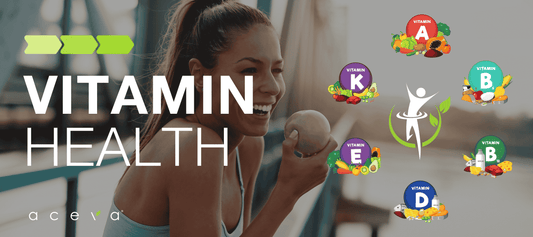
“Eat more good fats.” Chances are you’ve heard this piece of advice from your doctor or nutritionist. It may have come in the form of them telling you to eat more fish, or they recommended a supplement like Omega-3 Plus. There’s a reason for that. Eating more Omega-3 fatty acids (the “good fats”) is excellent for your overall health, boosting everything from your heart to your skin health.
Simply put, omega-3s do it all. To help you see the impressive health benefits these “good fats” can have, here is a crash course on omega-3 fatty acids and what you can do to get more of them in your daily diet.
What are Omega-3 Fatty Acids?
Omega-3s (also known as “fish oil”) are polyunsaturated fats. These are considered the best of the best good fats because they play a vital role in the health of every cell membrane in our bodies. They are made up of DHA and EPA animal-based fatty acids and ALA which are plant-based fatty acids.
Here’s the hangup, though.
Our bodies don’t have the enzymes needed to make these essential omega-3 fatty acids from scratch. The only way to get more omega-3s is from the foods you eat. Yet 98 percent of the US population doesn’t get enough omega-3 fatty acids in their diet, and most people eat too many omega-6 fatty acids. Keep reading to see why upping how much omega-3 you eat is so important.
Why the Omega-3 to Omega-6 Ratio Matters
Just like omega-3, omega-6 fatty acids come from the foods you eat. Both are good fats that your body needs. But the ratio you eat them in is where many trip up.

Most health professionals recommend that you aim for a 2:1 ratio of omega-6 to omega-3 fatty acids. The standard Western diet tends to skew much higher toward omega-6, however, with a 15:1 ratio. That’s where problems start! Too much omega-6 and too little omega-3 can result in health consequences like added inflammation throughout your body.
One of the key reasons behind this is that omega-6 fatty acids are in inexpensive, easy-to-find food sources like vegetable oils and are prevalent in many processed foods. Omega-3 fatty acids are more difficult to find and tend to be more expensive like fish, flaxseed, chia seeds, walnuts, and plant oils. That means you have to be intentional about adding more omega-3s to your diet.
How Omega-3s Help Your Overall Health

Now that we’ve given you a background on what omega-3s are, let’s get to the good stuff. Just how helpful are these essential fatty acids to your overall health? While omega-3s are well known for helping improve your heart health, the benefits of this potent source of fish oil don’t stop there.
Here’s a quick list of the many science-back benefits omega-3 fatty acids can have on your health. We also dive deeper into a few of these key benefits below.
Omega-3s may help your overall health by:
- clearing and protecting your skin
- reducing menopause symptoms
- relieving menstrual cramps
- fighting feelings of depression and anxiety
- reducing inflammation throughout the body
- improving eye health
- improving sleep
- supporting brain health
- and so much more
Omega-3s and Heart Health

When it comes to heart smart recommendations, eating more fish usually lands in the list of top 10 things you can do. That’s because cold-water fish like salmon, sardines, mackerel, and cod are all rich in omega-3 fatty acids! One of the key reasons omega-3s and fish oil are recommended for heart health is because studies show that this unsaturated fatty acid helps reduce inflammation throughout the entire body. If inflammation is left unchecked, it can lead to blood vessel damage, heart disease, and strokes.
According to Mayo Clinic, omega-3 fatty acids may benefit your heart health by:
- Decreasing triglycerides
- Lowering blood pressure
- Reducing risk for blood clots
- Decreasing risk of strokes and heart failure
- Balancing irregular heartbeats
How much omega-3s do you need to impact your heart health?
For many, eating at least two servings of fish a week should be enough to see a difference in your heart health. If you’re looking at alternate sources of omega-3s, aim for at least 500 mg a day of EPA plus DHA. If you have a known heart disease, aim for a minimum of 1,000 mg a day. One serving of Omega 3 Plus contains 700 mg of EPA and 500 mg of DHA. To find your right dose, ask your health provider about much omega 3 you should be taking.
Omega-3s and Healthy Skin

Another perk of a diet rich in omega-3s that isn’t talked about as much is that they can help improve the look and health of your skin. Yes, omega-3s could be the new foundation for your beauty routine. Let us explain.
- Omega-3s help protect your skin against sun damage. Studies show omega-3s help reduce the skin’s sensitivity to UV rays. That means you’re less sensitive to sunburns and rashes caused by too much time in the sun.
- Omega-3s can help reduce acne. Omega-3s are known for helping reduce inflammation. As more research comes out about how acne and inflammation are tied together, omega-3s connection in the fight against acne is a happy one. In fact, one study found that people who ate fish at least once per week lessened their risk of having moderate to severe acne by 32 percent compared to those who avoided seafood.
- Omega-3s guard against dry, itchy skin. That’s because omega-3s have been found to improve the skin barrier function. This helps you seal in moisture and keep irritants out. One study showed that taking just a half teaspoon of omega-3-rich flaxseed oil daily helped increase skin hydration and relieve dry, itchy skin by 39 percent!
- Omega-3s may help speed up healing. Research is still being done on this topic, but initial research shows promising results in omega-3s’ ability to heal wounds faster both by the foods you eat and as a topical solution.
How much omega-3s do you need for skin health?
Even small changes in your diet can help your overall skin health. That rings true when it comes to omega-3s and skin health too. You may start to see results as early as one week by adding just one serving of fish a week. To put that into perspective for those that don’t like fish and need alternate sources, one 3.5 oz. serving of wild salmon provides anywhere from 1000 mg (sockeye, silver) to 2000 mg (king) of EPA and DHA. You can also talk with your health provider about how much omega-3s you should add to your diet.
Omega-3s and Menopause Relief

Because omega-3s help with so many different processes in your body, it’s also a great go-to for helping women deal with unpleasant menopause symptoms. Here’s how omega-3 fish oil can help provide relief:
- Menstrual pain. For some women, menstrual woes like to go out with a bang during menopause, causing strong pain and cramping. One reason behind this is a substance called prostaglandins. Your body produces “good” and “bad” forms of prostaglandins. Unfortunately, menopause calls on the bad kind. Omega-3 fatty acids help balance this out by encouraging your body to produce more of the good form.
- Depression. Women are twice as likely to suffer depression than men, and the risk becomes even greater when a woman hits menopause. Omega-3s help reduce some of these symptoms like irritability and sadness.
- Osteoporosis. An increase in omega-3s also helps with bone strength by boosting the amount of calcium in your bones. This is key during menopause because when estrogen levels drop the bone resorption rate increases and bone mass declines.
- Vaginal dryness. Because fatty acids help lubricate the body in general, omega-3s can also help with vaginal dryness during menopause.
- Joint pain. Just adding a couple grams of fish oil to your diet a day may also greatly help reduce the intensity of joint pain. This can help with morning stiffness, swelling, and discomfort.
How much omega-3s should you take for menopause relief?
Many practitioners recommend menopausal women consume at least 1,000 mg of omega-3 fatty acids a day. Talk with your health provider about what is right for you, depending on your current diet and the severity of symptoms.
Omega-3s and Fighting Depression & Anxiety

Depression is a common health issue that many experience. Yet, it appears to be less common in nations where people eat large amounts of fish. The reason behind this could be linked to omega-3 fatty acids.
For over 10 years, researchers have been looking at omega-3s’ effect on mental health. While research is still ongoing, there have been some promising studies that show omega-3s and fish oil may be helpful in treating some forms of depression.
To help explain this, let’s take a look at what we know about omega-3s and brain health:
- The brain needs the type of fatty acids found in omega-3s to function properly.
- Omega-3s can affect your brain cells, restoring their structural integrity.
- People with minor depression, postpartum depression, and suicidal ideation tend to have lower levels of EPA and DHA.
- Some studies show that boosting EPA and DHA levels in the body can significantly improve depression symptoms.
- Omega-3s help reduce anxiety and inflammation, both of which have been shown to help relieve depression.
How much omega-3s do you need to balance your mood?
Researchers found that people who took at least 2,000 mg a day seem to get the most relief from anxiety. Pairing EPA with DHA also seems to be more effective at helping fight depression symptoms.
The Best Food Sources of Omega-3

The best way to get more omega-3s in your diet is to get it from the foods you eat. Think small cold-water fish like mackerel, salmon, sardines, and tuna. But if fish isn’t your thing, no worries.
You can also get omega-3s from plant-based sources like:
- seaweed and algae
- chia seeds
- hemp seeds
- flaxseeds
- walnuts
- edamame
- kale
- broccoli
- brussels sprouts
- kidney beans
What to Look for in an Omega-3 Supplement
Don’t think you can get what you need from the foods you eat? You can add omega-3s into your daily diet with a high-quality fish oil supplement. Omega 3 Plus (capsule form) and Omega Longevity (liquid form) check all the boxes of a quality fish oil supplement.

Both help your body reach optimal levels of essential fatty acids in a burp-free, easy-to-swallow fish oil supplement. Another bonus is that these advanced triglyceride forms allow for up to 51% greater absorption over typical ethyl ester fish oils. They are also sustainably sourced and guaranteed to be free of toxins like mercury and lead.
Try adding more omega-3 in your diet and document the differences you feel.




